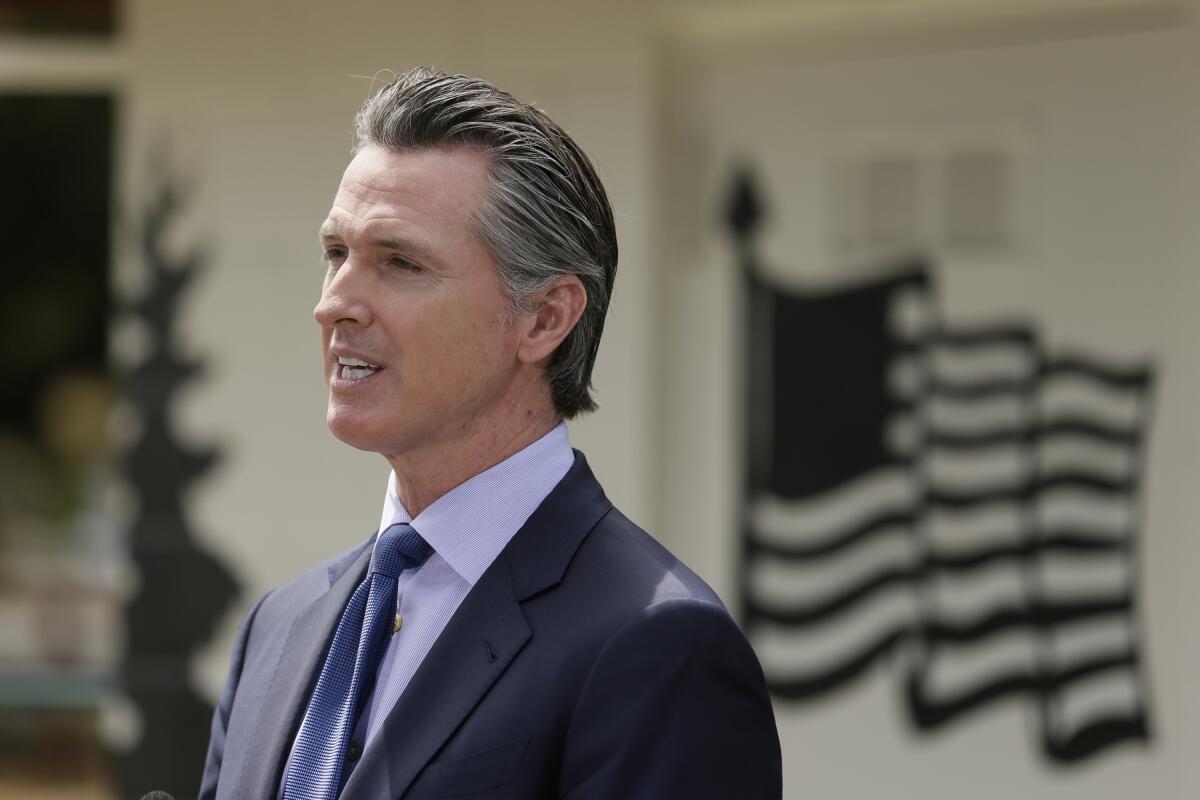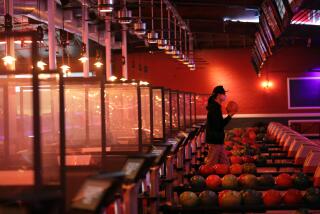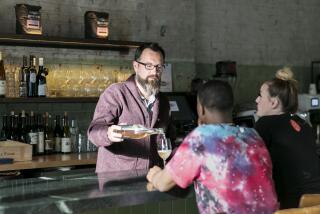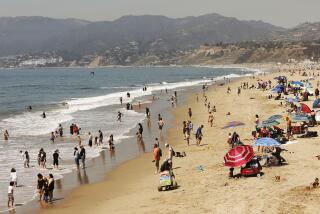Is California reopening too quickly? Newsom explains the state’s strategy for slowing coronavirus while boosting economy

- Share via
SACRAMENTO — California’s efforts to restart the economy hit a new milestone with the decisions to allow Los Angeles County, the epicenter of the coronavirus in California, to reopen restaurants, barbershops and hair salons.
There have been questions about whether the state is moving too fast.
But Gov. Gavin Newsom, whose first-in-the-nation stay-at-home order was crediting with slowing the spread of COVID-19, on Friday made the case for how the state is proceeding.
Californians have successfully slowed the spread of the coronavirus this spring allowing the rapid easing of his stay-at-home order and freeing most residents to leave the safety of their homes to venture to salons, shops and restaurants, and in some cases return to work.
Los Angeles became the latest county to receive approval from the Newsom administration to accelerate the reopening of its economy, despite being California’s biggest COVID-19 hotspot with nearly 2,300 confirmed deaths thus far out of the roughly 4,000 statewide. In all, 48 of California’s 58 counties have been granted waivers.
In April, Newsom unveiled his multistage plan for reopening in late April and the state has moved expeditiously to grant variances to counties since then. It took just 17 days for state officials to sign off allowing the state’s first two counties to begin reopening — Butte and El Dorado, both in Northern California — and the green light for loosening the restrictions in Los Angeles.
“It’s because of your extraordinary work, 40 million of you, we bought time,” Newsom said at a COVID-19 briefing in Sacramento on Friday. “We never allowed that curve to take off like other parts of this country. We’ve had stability for weeks and weeks and weeks.”
Newsom noted that roughly 50,000 Californians statewide are being tested daily for the coronavirus. Over the past seven days, just over 4% of those tested statewide have been positive, which he called an “encouraging number.” Newsom said that hospitalizations for COVID-19 also have remain stable statewide, and most California medical centers have ample capacity.
But the state has also faced setbacks with reopening.
The decision comes as two of the first counties in California to ease restrictions, Sonoma and Lassen, scaled back reopening plans after experiencing a spike in COVID-19 cases when some restrictions were lifted. Santa Clara County public health officer Dr. Sara Cody, a key architect of the nation’s first stay-at-home order, earlier this week also criticized California’s fast pace in lifting stay-at-home restrictions, saying it could trigger a surge in cases.
Dr. Robert Kim-Farley, an epidemiologist and infectious-disease expert at the UCLA Fielding School of Public Health, said that despite Los Angeles County being hard hit by the pandemic, hospitalizations for the virus have not increased. He said that’s a good indication that the county has “flattened the curve” and, thus far, effectively prevented COVID-19 patients from overwhelming hospitals and the healthcare system, which has been the primary public health concern since the outbreak.
“It’s very difficult for people to make a living at this stage. But a responsible phased reopening, done in a prudent manner — it makes sense at this stage,” Kim-Farley said.
Still, Kim-Farley and others cautioned that it could be several weeks before public health officials are able to determine if the eased restrictions will trigger an increase in COVID-19 cases, and warned that the “free-for-all” of crowded bars and gatherings seen in other states would likely lead to a new wave of the virus.
“If we fully reopen too soon without the necessary restrictions and prevention methods like masking, testing and physical distancing, we could have another spike in infections and deaths that will lead us back to fully sheltering in place, and no one wants that to happen,” said epidemiologist Brandon Brown of the UC Riverside Department of Social Medicine, Population and Public Health. “If we develop reopening standards, we need to make sure we meet those standards before moving forward, otherwise why make the standards at all?”
In seeking a variance from the state, L.A. County officials argued that the county has met the criteria created by the California Department of Public Health to reopen. Even if COVID-19 cases increase, the county will have the capacity to respond, officials said.
Los Angeles County reported a decline in its total number of hospitalized patients, a seven-day average of daily percent change of -1%, according to the variance application. The county also stated that the prevalence of the coronavirus spreading in the community was low enough to reopen, with less than 8% of those who tested coming back positive over the previous seven-day period.
Newsom established the variance process in May, requiring counties to prove to the state that COVID-19 hospitalizations have stabilized, medical centers, nursing homes and other essential services have adequate protective equipment and that they are prepared to accommodate and care for a surge in patients affected by the virus.
On Friday, Newsom made it clear that adherence to those reopening standards is the responsibility of the counties — not the state — repeating his oft-used catchphrase “localism is determinative.” The Newsom administration has not yet provided specifics as to whether or when state health officials would intervene if restrictions are not followed at the county level and cases begin to increase.
“Local health officials are the tip of the spear,” Newsom said. “They have the right and the responsibility to make determinations based on local conditions in partnership with their local elected officials. We respect that right, we honor it. Some will go slowly, some will go a little bit more quickly.”
Counties granted waivers by the state have been allowed to reopen restaurants for in-person dining, along with barbershops and hair salons — with proper safeguards in place, such as the use of face coverings, a restricted number of customers and sanitation protocols.
The state already allowed retailers and shopping centers to open, along with office buildings, manufacturers and other business, with the same safeguards in place. Faith-based organizations also can resume services, with the number of congregants limited.
Large gathers, such as concerts and major sports events with fans, remain prohibited and are not expected to resume until there is a vaccine or effective treatment for COVID-19.
More to Read
Sign up for Essential California
The most important California stories and recommendations in your inbox every morning.
You may occasionally receive promotional content from the Los Angeles Times.











